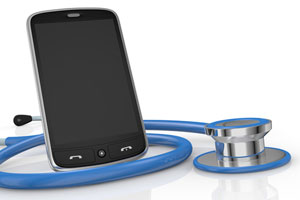SOCIAL media may mark a revolution in the collection of health data but early patient-driven research has raised a raft of new ethical dilemmas according to experts.
The methodological limitations of this type of research have been raised in an article published in PLoS Medicine, with the authors expressing concern that these limitations were often not fully disclosed to research participants. (1)
They authors wrote that online health communities such as PatientsLikeMe, and genome testing companies such as 23andMe and the Personal Genome Project made strong claims regarding the benefits of research to encourage individuals to part with personal health details.
Yet research relying on the collection of self-reported data by self-selected participants had known methodological limitations including selection bias, information bias and confounding, they wrote.
Transparency regarding the benefits of research using solicited personal data was especially important given the data were often sold to third parties such as pharmaceutical and insurance companies.
“We worry that overstating the conclusions that can be drawn from these resources may impinge on individual autonomy and informed consent”, the authors wrote.
Professor Colin Thomson, an academic leader in law and ethics from the Graduate School of Medicine, University of Wollongong, NSW, said patient-driven research would only gain credibility if its scientific design and ethical dimensions were subjected to independent review.
However, he said it was more likely that these types of websites would become recruitment mechanism for well designed projects like clinical trials.
Professor Enrico Coiera, director of the Centre for Health Informatics at the Australian Institute of Health Innovation, said another problem with this type of research included de-identification of data.
“It’s … not hard to take anonymous data and work out who it belongs to, especially if [research participants] live in a small town and have a rare disease or use an uncommon medication. There are proper ways to de-identify data but not all organisations are doing this”, he said.
Professor Coiera said that ultimately the collection of data online would transform modern medicine.
“The hope is that one day every patient will be in a clinical trial and that their experience will contribute to research”, he said. “This is real personalised medicine and I think it will be transformational, but that’s not say it hasn’t got its problems or that it will be easy.”
The PLoS Medicine article authors described how online initiatives could speed up scientific research by facilitating the recruitment of participants, which had particular relevance for rare diseases such as amyotrophic lateral sclerosis and Parkinson disease.
PatientsLikeMe includes a trial search tool linked to ClinicalTrials.gov that allows patients to see which trials are recruiting.
The authors wrote that these sites, with their rich data collections and online opportunities for fast data updates, could quickly put new topics on the scientific agenda and question published observational studies and trials.
For instance, they said within a week of the high-profile publication of a putative genetic predictor of longevity, 23andMe showed it did not replicate in their data. The authors of the longevity study then re-examined their study protocol and data analysis, and retracted their initial publication.
– Amanda Bryan
1. PLOS Med 2012; Online 23 October
Posted 29 October 2012

 more_vert
more_vert
I would have thought that maintaining/ensuring the various criteria for the various studies etc, could be incredibly difficult to manage and wide open to abuse and skew(er)ing.
Unless, that is, they become incredibly and deeply intrusive on a wide scale. Not a good thing.